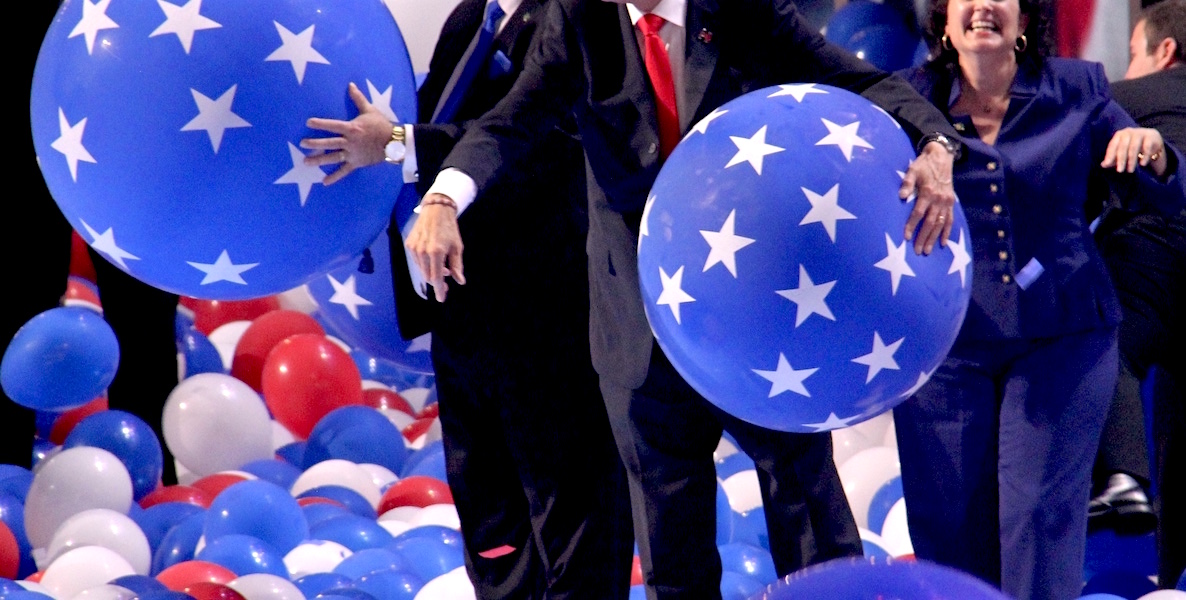On Tuesday night, like so many, I was toggling back and forth between Fox News and MSNBC, a front row seat before our national cultural civil war. Then, just moments after it had been reported that the Democrats would take back control of the House of Representatives, there was Democratic Rep. Adam Schiff on the screen, who, come January, will head the House Intelligence Committee. And he was pledging to subpoena the President’s tax returns.
Here we go, I thought. I thought back to a prediction made to me last summer by the late Jeremy Nowak: “The Democrats will take back the House, then typically overreach on impeachment, Trump will brilliantly play the victim and ride the electorate’s grievances to reelection in 2020.”
Nowak was rarely wrong, and, already, it feels like his vision is playing out. The House should perform its constitutionally-mandated oversight. But it’s politically perilous to seem to be overreaching. Schiff’s legalistic, inside-the-Beltway commentary—when he could have been talking about ideas designed to help actual voters—when added to CNN’s Jim Acosta’s hounding of the president at his day-after press conference, combined to feel like the resistance was acting out in response to a voter verdict that was more ripple than blue wave. (Regarding Acosta, watch the clip: In what universe are “questions” like “why did you characterize the caravan as an invasion…they’re hundreds of miles away, that’s not an invasion” designed to do anything but just shed more heat than light?)
This week’s election results, it would seem, doubled down on polarization. The darlings of the progressive left—Beto O’Rourke, Andrew Gillum, Stacey Abrams—all appear to have lost, (though Georgia and Florida have yet to be called), and the Senate is redder than before. Yet, overall, voters nationwide preferred Democrats to Republicans by 9 percentage points, more of a differential than in 2006’s seismic midterm shift.
“This country is full of very practical people,” Vague told me. He rarely heard anything about what takes up so much time on our airwaves. “I didn’t hear about the Russia investigation or about the high heels Melania wore. What we heard, time and again, was what are commonly called ‘kitchen table issues.’ Jobs, yes, but better jobs.”
But where were those voters? Republican suburbanites and independents, turned off by Trump, may have voted Democratic, but not so much for progressive candidates who led with left-leaning, social democrat red meat issues and whose admirable defense of the contributions of immigrants—legal and illegal—were seldom accompanied by any talk of reasonable border security.
If anything, since Tuesday, it’s clear we’re more divided than ever. But it needn’t be that way, especially if progressives, rather than responding to Trump like Trump, took a deep breath and a step back…and tried a new, more substantive approach. There are plenty of ideas for such a game plan out there. One has been cooked up right here in Philly, by local philanthropist, entrepreneur, and civic force Richard Vague, who, in his spare time, creates algorithms that can predict economic calamity, writes tomes about the history of economic collapse, and underwrites the groundbreaking cancer-curing work of Dr. Carl June at the University of Pennsylvania.
![]()
Vague is immensely curious; Philly’s football-playing urbanist Connor Barwin once described him as a “modern-day Ben Franklin.” Well, after the election of 2016, Vague found himself—again, like so many of us—flicking between those two channels, Fox and MSNBC. It felt like he was watching two different countries.
“I knew what Fox was telling me the voters wanted, and I knew what MSNBC was telling me the voters wanted,” Vague said when I caught up with him this week. “But I didn’t trust the 24 hour news cycle to tell me what voters really want. So I decided to find out.”
So Vague—a man of action—first picked the brains of political friends like former Governor Ed Rendell, and then started traveling the country, conducting his own focus groups. Over 12 months, he conducted 20 focus groups in 6 states—Nevada and Florida among them—and spoke to a diverse cohort of hundreds of voters with household incomes between $40,000 and $80,000 who had voted in the last two presidential elections. Unlike other political focus groups, Vague wasn’t selling anything. He wasn’t testing policy ideas or slogans. He was simply curious. He was listening. And what he heard—and didn’t hear—blew him away.
What Vague heard in his focus groups, what Laura Kelly demonstrated in Kansas, and what the folks at thirdway.org are addressing from a policy perspective ought to wake all of us up. Maybe it’s time we take a cue from Richard Vague and start listening.
“This country is full of very practical people,” he told me. He rarely heard anything about what takes up so much time on our airwaves. “I didn’t hear about the Russia investigation or about the high heels Melania wore. What we heard, time and again, was what are commonly called ‘kitchen table issues.’ Jobs, yes, but better jobs. We’d ask where people saw themselves in five years, and there’d be no sense of building a career. In fact, some folks talked about not wanting to make too much money for fear of getting pushed out in favor of someone who could be paid less. Health care would send an electric current through the room whenever it was brought up, but it wasn’t just pre-existing conditions or access, which Obamacare addressed. It was also affordability. You’d hear, ‘I haven’t finished paying off my son’s surgery and now I’m having to postpone my own.’ There was just a deep unease out there. Politicians talk about the employment numbers, but people aren’t living their day to day lives in abstractions.”
![]()
Vague is the most practical of problem solvers, something our politics could desperately use. I don’t know if he’s considering running for anything—he scoffs at the notion—but he does come alive talking about a new way to talk about policy. In a sense, he’s advocating for a populism that doesn’t prey on people’s fears so much as listen to their aspirations—and then addresses them.
“We’ve got to focus on the issues that matter in people’s day to day lives,” he says. Case in point: When it comes to health care, one thing that could be done right away is “taking Medicare to 55. That would take the pressure off companies policies and allow for stabilization of premiums and deductibles.”
Vague points out that the “Big 4 diseases”—cancer, heart disease, Alzheimers and diabetes—comprise 80 percent of all health care spending. “It doesn’t matter what your health care plan is—single payer, Obamacare, something in between,” he says. “Until we solve those four, health care costs are going to go up. And, by the way, all the terrorism in the world kills a few thousand people a year? Well, these four terrorists kill millions a year. A researcher like Carl June has to spend half of his time fundraising instead of in the lab. If we triple funding of the National Institutes of Health, man oh man, it would solve the health care crisis and create an IT and jobs revolution in the United States.”
What Vague hears in his focus groups apparently falls on deaf ears when elected leaders consider governmental priorities. When it comes to science and health care, we’re disinvesting. “We’re falling behind China in scientific investments and scientific papers published,” Vague says. “China will pass us in the next few years in international patents.”
What he hears in his focus groups—the pleas for help on the health care front—apparently falls on deaf ears when elected leaders consider governmental priorities. When it comes to science and health care, we’re disinvesting. “We’re falling behind China in scientific investments and scientific papers published,” Vague says. “China will pass us in the next few years in international patents.”
Vague’s call for policy prescriptions that speak to voters’ kitchen table issues means that progressives might have to lay down their arms, which is not the same as betraying one’s own principles. If the takeaway from Tuesday’s election is that red got redder and blue got bluer, the ultimate winner of this standoff will be the one who speaks to the needs of those between the already dug-in. And there was evidence in Tuesday’s returns that it’s doable.
In the Kansas Governor race, the slogan of Republican nominee Kris Kobach was “Make Kansas Great Again”; Kobach, you’ll recall, was the Trump mini-me who fueled the fiction that 3 to 5 million illegal immigrants voted for Hillary Clinton in 2016. Lo and behold, Kobach was upset by former State Senator Laura Kelly, whose “winning formula,” according to Jane Meyer in the New Yorker, “was to ignore provocative bait and focus on proverbial ‘kitchen table’ issues that had nothing to do with Trump. Instead of engaging with Trumpist tropes about immigration and voter fraud, or on the issue of Trump himself, she studiously focused on education, Medicaid expansion, and the woeful fiscal condition that the state had been left in by its unpopular former governor, the Republican Sam Brownback.”
Third Way, the national think tank that champions center-left ideas, has created a new political archetype: The Opportunity Democrat. Third Way’s opportunity agenda is designed to address the very anxiety Vague came face to face with. It offers “a new social contract for the Digital Age: bold new ideas that will provide every American everywhere a real opportunity to earn a good life,” writes the group. “Since the 2016 election, the Democratic Party has engaged in a debate over the best ideas to move the country forward and defeat Donald Trump. In the echo-chamber of social media, a conventional wisdom has developed that Bernie Sanders-style ideas are ascendant—particularly with the voters that make up a winning Democratic coalition. But new data shows that a narrative and agenda focused on expanding opportunity is both more popular with Democratic voters than a Sanders-style approach and significantly more likely to help Democrats beat Trump in 2020.”
Who says centrism can’t be passionate? The Opportunity Agenda policy prescriptions, if ever adopted, would re-energize our tired public narrative. Some of my favorites: “Boomer Corps”—think the Peace Corps for boomers, here at home, enabling seniors to earn tax free in retirement; a regional minimum wage; an American Investment Bank that “backs small and medium business loans and investments so that risk capital is available to millions more entrepreneurs”; a $200 billion federal innovation trust fund to finance both public and private R&D; a “small business bill of rights” that turns government from impediment into ally.
Most critically, the agenda calls for doing away with unemployment insurance and replacing it with “Reemployment Insurance” that provides temporary income, yes, but also grants for training and vouchers for moving. Had the Clintons adopted such a program back in 1993 to help ease the transition of those adversely affected by NAFTA, perhaps Hillary would be president today.
Too many of us trapped in our progressive coastal echo chamber shake our heads in wonder when we consider red state voting. We default to the usual tropes. But, when 13 percent of 2016 Trump voters had voted for Obama twice, it’s too intellectually dishonest to write them off as racist. What Vague heard in his focus groups, what Laura Kelly demonstrated in Kansas, and what the folks at thirdway.org are addressing from a policy perspective ought to wake all of us up. Maybe it’s time we take a cue from Richard Vague and start listening.
Photo via Flickr






